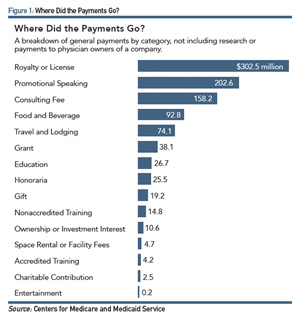And the Verdict Is
Coincidence or not, on the night of Halloween, the CMS issued its changes to the Sunshine Act—not a trick, but more of a treat. In issuing these changes, the agency demonstrated that it had heard the concerns of the ACR and others by fixing the language of the policy in a way that effectively incorporated the CME exemption within other sections of the final rule. The CME community perceived this change as a huge victory. The regulation now states that as long as an applicable provider “does not require, instruct, direct, or otherwise cause the continuing education event provider to provide the payment to a covered recipient,” then it falls into the nonreportable category. CMS also put to rest concerns about the proposed time frame of “awareness” by applicable manufacturers of recipients of transfers of value. The revised policy states that payments remain unreportable even if the commercial supporter subsequently discovers the identity of the covered recipient.
Sun Shines on the ACR
Aside from CME, payments or transfers of value made to physicians indirectly through professional organizations, such as the ACR or the Rheumatology Research Foundation, are reportable if the manufacturer knows that money will be paid to physicians or earmarks the money to go to physicians. Although the ACR and/or the Foundation do not make any reports to the government as a result of the Sunshine Act, it will be required to report back to those companies from which they receive financial support. To this end, the ACR will be collecting physicians’ NPI numbers through the online ACR My Profile and during registration of its various activities.
It’s important to emphasize that speakers at CME-accredited meetings or attendees at these meetings are not reportable to the sponsoring company. However, some activities are reportable, such as accepting payment for speaking at a non-CME event sponsored by the ACR, receipt of certain grants from the Foundation or attending a company-sponsored event.
The ACR and the Foundation will tell its members ahead of time whenever an ACR or Foundation activity is reportable to a company sponsor. In this way, members will have the opportunity to decline participating in an activity if they wish to avoid having this information being reported back to a company.
The Sunshine Act continues to be a hot topic at the ACR. The Board of Directors was informed about the proposed changes to this policy at its August meeting when it was discussed by Joel Block, MD, chair of the Committee on Education. Members have been kept apprised of the reporting and dispute process through articles in RheumWatch and the Rheumatology Morning Wire. In light of these evolving policies, task forces have been formed by both the ACR and the Foundation that will address the ongoing challenges posed by the Sunshine Act and will work in parallel to develop policies, procedures, and action plans that will ensure compliance with these regulations while retaining positive and fruitful relationships with industry.
